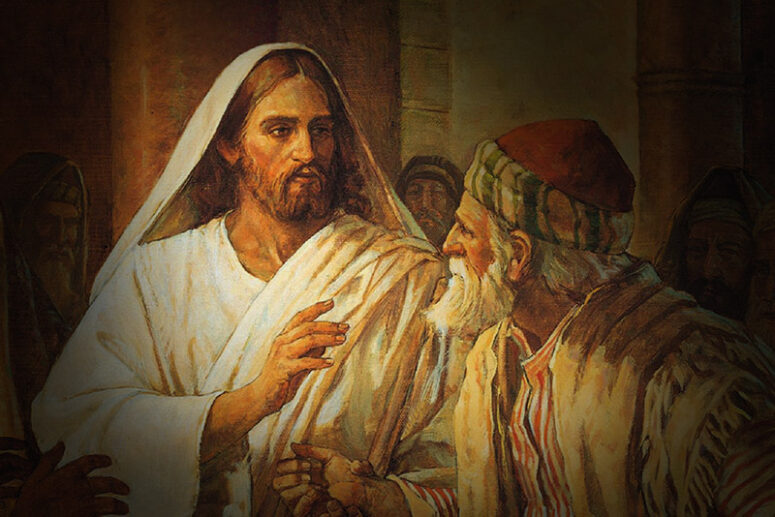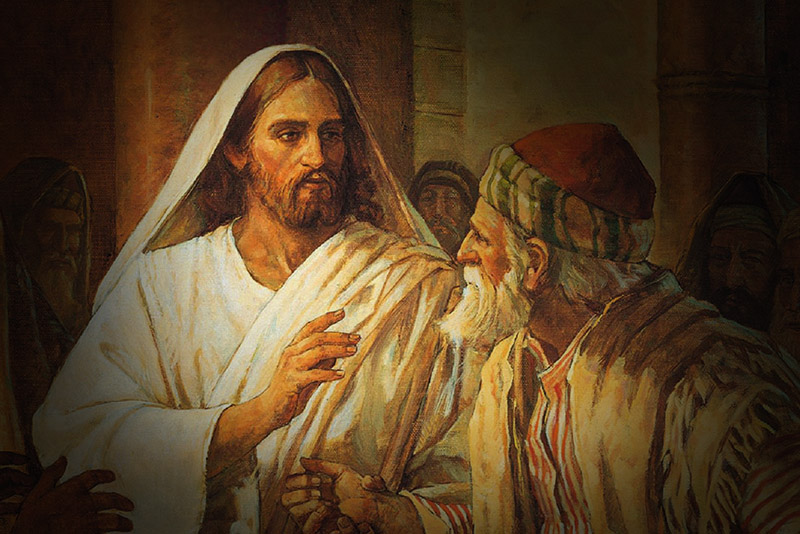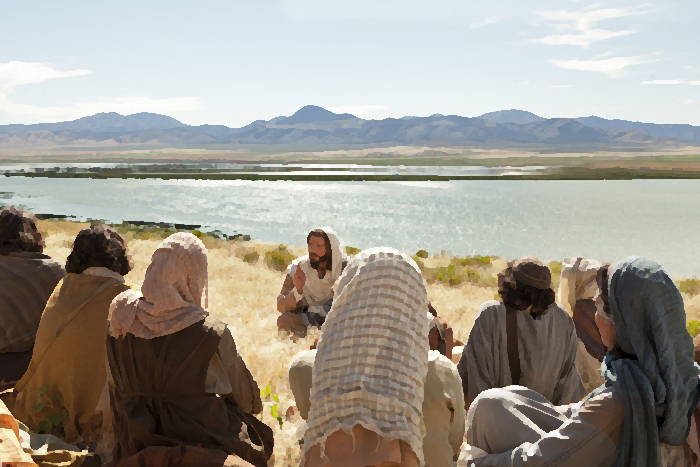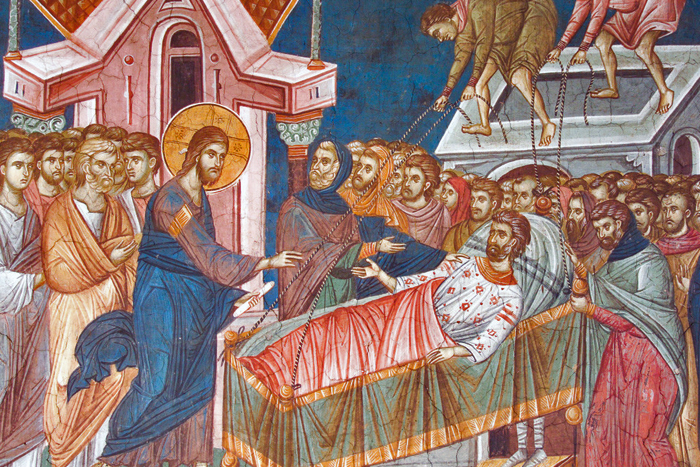
The sayings ascribed to Christ but not found in the Gospels are also called the Agrapha. There are many known Agrapha, some of which may indeed belong to Christ, while others may be questionable and contradict the spirit of the Gospel. Where can we locate the Agrapha, and which ones can we trust?
Below we provide some illustrative examples of the Agrapha. The sheer number of sayings attributed to Christ makes it highly problematic to count the Agrapha more or less reliably. The authenticity of many is doubted or disputed.
Classification of the Agrapha
Agrapha can be classified by their origin or source, notably:
- The Holy Scriptures;
- Writings of the Holy Fathers of the early Church;
- Early liturgical texts;
- Recently discovered literary monuments;
- The Apocrypha, bogus and non-Christian sources.
New Testament Agrapha
In addition to the Gospels, Christ’s sayings appear in the Acts of the Apostles, Epistles of St Paul, Catholic Epistles and the Apocalypse.
Some New Testament Agrapha are fully or partially identical to the text of the Gospel, others are distinct from the Gospel texts. Examples of the former are Christ’s words at the Last Supper:
|
Matthew 26:26-28 |
Mark 14:22-24 |
Luke 22:19-20 |
1 Corinthians 11:24-25 |
|
“Take and eat; this is my body.” […] Drink from it, all of you. This is my blood of the covenant, which is poured out for many for the forgiveness of sins. |
“Take it; this is my body.” […] This is my blood of the covenant, which is poured out for many, |
“This is my body given for you; do this in remembrance of me.” This cup is the new covenant in my blood, which is poured out for you.
|
“This is my body, which is for you; do this in remembrance of me.” “This cup is the new covenant in my blood; do this, whenever you drink it, in remembrance of me.” |
Apostle Luke was a disciple of the Apostle Paul. His Gospel was written 15-20 years after the Epistle to the Corinthians. Remarkably, Apostle Luke does not quote from the other Evangelists, but only from Paul.
Examples of the Agrapha that differ from the Gospel text include Christ’s sayings from Apostle Paul: ‘It is more blessed to give than to receive.’ (Acts 20:35); the Revelation: “Here I am! I stand at the door and knock. If anyone hears my voice and opens the door, I will come in and eat with that person, and they with me.” (3:20); “Behold I come as a thief” (16:15); the Catholic Epistles: “Do not swear—not by heaven or by earth or by anything else. All you need to say is a simple “Yes” or “No.” Otherwise you will be condemned.” (James 5:12).
Some Agrapha occur only in select manuscripts of the Scripture books. For example, in the Beza Codex following verse was inserted after Luke (6:4): “On that same day, seeing someone working on the Sabbath, he (Jesus) said to him, “Man, if you know what you do, blessed are you; but if you do not know, you are cursed and a transgressor of the law.”.
Some verses in the epistles of the Apostles quote from Jesus without direct attribution. Saint Epiphanius of Cyprus and Dydomus the Blind ascribe to Christ the following verse from 2 Peter (3:10): ” But the day of the Lord will come like a thief. The heavens will disappear with a roar; the elements will be destroyed by fire, and the earth and everything done in it will be laid bare.”
The most trustworthy Agrapha are those that derive from the Gospel text or contain attributions to Christ made by the Apostles. Although we cannot disregard the writings of the Holy Fathers, the Agraphas contained therein should be treated with caution.
Holy fathers, theologians, early Christian literature
Typically, these Agraphas will Conform with the spirit of the Gospel, but establishing the authenticity of these quotes is problematic in most cases. Some have become so integral to church language that their origin from non-Evangelical sources is often disregarded. These Agrahas can be found in Didache, the Rules of the Holy Apostles, St. Clement of Rome, St. Ignatius the Theologian, St. Polycarp of Smyrna, St. Irenaeus of Lyons, St. Mt. Justin the Philosopher and other sources.
Examples: «And so Jesus said, “Because of the weak I was weak, and I hungered because of the hungry, and I thirsted because of the thirsty» (Origen, «A discourse on the Gospel of Matthew»)
«Wherefore also our Lord Jesus Christ said, In whatsoever things I apprehend you, in those, I shall judge you.» (saint Augustin the Martyr, «Conversation with Tryphon the Jew»)
«For thus He spoke: ‘Be ye merciful, that ye may obtain mercy; forgive, that it may be forgiven to you; as ye do, so shall it be done unto you; as ye judge, so shall ye be judged; as ye are kind, so shall kindness be shown to you; with what measure ye mete, with the same it shall be measured to you» (Saint Clement of Rome, «First Epistle to Corinthians »).
«But also now concerning this, it has been said, Let your alms sweat in your hands, until you know to whom you should give.» («Didache»).
Liturgical texts
Agrapha from liturgical texts are scarce and have not been studied extensively. Their authenticity, therefore, is uncertain.
For example, the order of the sacrament of Extreme Unction has lines attributed to Christ, preceded by the words “You say”. Most come from the canonical Gospels, except for this one: “You say: If you fall, rise, and you will be saved.
According to tradition, the lines “Soul of truth… come and dwell in us and cleanse us” of the prayer “Heavenly King” is ascribed to Christ. In some ancient manuscripts of the Lord’s Prayer, it replaced the petition “May Your Kingdom come”. According to St Gregory of Nyssa, Luke 11:2 reads, “May Your Holy Spirit enter us and purify us”.
Recently Discovered Texts
Recently discovered sources are ancient texts that remained unknown for long periods. Some examples include the papyri found at the end of the 19th century, with fragments of Holy Scripture, known Apocrypha, and unknown texts and gospels. Some sayings of Christ found such texts can be fully or partly identical with texts from the canonical Gospels. Others may come from the Apocrypha and should be treated with caution.
“Jesus saith: Wheresoever there be two, they are not without God, And where there is one alone, I say, I am with him. Lift up the stone, and there thou shalt find me; Cleave the wood, and there I am.” This discourse of Christ from the Oxyrhynchus Papyri was also quoted in the apocryphal Gospel of Thomas, which the Holy Fathers described as Manichaean. Its text was lost but was retrieved in 1945.
Apocrypha, bogus and non-Christian texts
Agraphas from this group should be treated with the least confidence. Most come from apocryphal and openly heretical gospels, the Talmud, the Koran, etc and have nothing in common with the spirit of the Gospel.
“‘Indeed I have come to you with a sign from your Lord in that I design for you from clay [that which is] like the form of a bird, then I breathe into it and it becomes a bird by permission of Allah. And I cure the blind and the leper, and I give life to the dead – by permission of Allah. And I inform you of what you eat and what you store in your houses. Indeed in that is a sign for you, if you are believers.” (Qur’an, 3:49)
“The perfect Savior said: “I came from the Infinite that I might tell you all things. Spirit-Who-Is was the begetter, who had the power <of> a begetter and a forgiver’s nature, that the great wealth that was hidden in him might be revealed. Because of his mercy and his love, he wished to bring forth fruit by himself, that he might not <enjoy> his goodness alone, but (that) other spirits of the Unwavering Generation might bring forth body and fruit, glory and honour, in imperishableness and his infinite grace, that his treasure might be revealed by Self-begotten God, the father of every imperishableness and those that came to be afterwards. But they had not yet come to visibility. Now a great difference exists among the imperishables.” (“The Wisdom of Jesus Christ”)
“Simon Peter said to him, “Let Mary leave us, for women are not worthy of life.”
Jesus said, “I myself shall lead her in order to make her male, so that she too may become a living spirit resembling you males. For every woman who will make herself male will enter the kingdom of heaven.” (“The Gospel of Thomas”)
Significance of the Agrapha
The Agrapha are still of interest to scholars and remain an object of study. But the less sophisticated reader would be well advised to give credence only to those sayings that come from an authoritative source, such as the Scripture, writings of the Holy Fathers or early Christians that do not contradict the spirit of the Gospel. Many of these sayings are highly instructive and consistent with His preaching. Not all of Christ’s sayings were included in the Gospel, as John the Evangelist admits (see John 21:25). The value of the Agraphas then is that they may contain the authentic teachings of Christ.





Hi Brother John, thank you for this wonderful article! 😊
Hi, Svilen! Thank you! It’s a pleasure to know you appreciate it